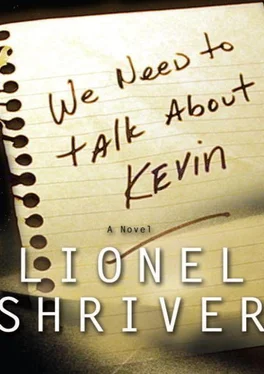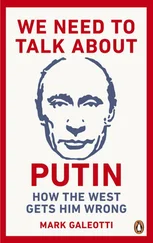“Just so long as they’re totally empty,” said Kevin breezily.
“You think we’re hypocrites.”
“Your word, not mine.” He glided past the Runcible Spoon around the corner to Main Street, turning the heads of some older high school girls loitering across the way by the Long Island Drum Center. Frankly I don’t think his smoky Armenian looks drew their attention so much as the languid elegance of his manner, at such odds with his preposterous clothes: He moved levelly on the same plane, as if rolling on casters. Then, those fine exposed hipbones couldn’t have hurt.
“So,” Kevin summed up, weaving through pedestrians, “you want to keep the presents and the high-test eggnog, but chuck the prayers and the boring Christmas Eve service. To cash in on the good stuff without having to pay for it with the shit.”
“You could say that,” I agreed cautiously. “In a broad sense I’ve tried to do that all my life.”
“Okay, long as you can get away with it,” he said cryptically. “Not sure it’s always possible.” And he let the subject go.
Conversation once again ceased to flow, so when one of them almost ran me over, I supposed aloud that maybe we could buy Celia one of those superthin aluminum Razor scooters that had abruptly become so popular.
Kevin said, “You know, couple years ago, you give a kid some geeky scooter for Christmas and he’d have bawled his eyes out.”
I lunged at the chance to be collegial. “You’re right, that’s one of the things that’s wrong with this country, it’s so faddish. It was the same with in-line skates, right? Overnight, a must-have. Still—” I bit my lip, watching yet another boy whiz past on one of those narrow silver frames. “I wouldn’t want Celia to feel left out.”
“Mumsey. Get real. Ceil would be scared shitless. You’d have to hold her little hand everywhere she went or you’d have to carry her, scooter and all. You ready? ’Cause count me out.”
Okay. We didn’t get the scooter.
In fact, we didn’t buy anything. Kevin made me so self-conscious that everything I considered seemed to damn me. I looked at the scarves and hats through his eyes and they suddenly seemed stupid or unnecessary. We had scarves. We had hats. Why bother.
Though I was sorry to lose our parking space, I was glad of the chance to act the proper mother for once and announced sternly that we would now go back to the house, where he would dress for dinner in normal-sized clothes —although his airy response, “Whatever you say,” made me more aware of the limits to my authority than of its force. As we passed back in front of the Runcible Spoon on the way to the car, a corpulent woman was sitting alone at a table by the window, and her hot fudge sundae was built on that lavish American scale that Europeans both envy and disparage.
“Whenever I see fat people, they’re eating,” I ruminated safely out of the diner’s earshot. “Don’t give me this it’s glands or genes or a slow metabolism rubbish. It’s food. They’re fat because they eat the wrong food, too much of it, and all the time.”
The usual lack of pickup, not even mm-hmm , or true . Finally, a block later: “You know, you can be kind of harsh.”
I was taken aback and stopped walking. “You’re one to talk.”
“Yeah. I am. Wonder where I got it.”
Driving home, then, every time I came up with something to say—about pushy SUV drivers (or, as I preferred to playfully misspeak, SRO drivers), garish Nyack Christmas lights—I realized it was whittling, and I’d swallow the remark. I was apparently one of those types who, should she follow that edict about if you can’t say something nice , would say nothing at all. Our raw silence in my Luna supplied a foretaste of the long periods of dead air that would pass in Claverack.
Back home, you and Celia had been working on homemade tree ornaments all afternoon, and you’d helped her to weave tinsel in her hair. You were in the kitchen arranging frozen fish sticks on a tray when I bustled from the bedroom and asked you to fasten the top button of my hot-pink silk dress. “Wow,” you said, “you’re not looking very maternal.”
“I’d like to create a sense of occasion,” I said. “I thought you liked this dress.”
“I do. Still,” you mumbled, buttoning, “That slit up the thigh is cut pretty high. You don’t want to make him uneasy.”
“I’m making someone uneasy, obviously.”
I left to find some earrings and to splash on a little Opium, then returned to the kitchen to discover that Kevin had not, for once, merely followed the letter of my law, for I’d half expected to find him decked out in a “normal-sized” bunny suit. He was standing at the sink with his back to me, but even so I could see that his lush black rayon slacks rested gently on his narrow hips and fell to his cordovans with a slight break. I hadn’t bought him that white shirt; with its full sleeves and graceful drape, it may have been fencing garb.
I was touched, I really was, and I was about to exclaim about what a handsome figure he cut when he didn’t wear clothes designed for an eight-year-old when he turned around. In his hands was the carcass of a whole cold chicken. Or it had been whole, before he clawed off both breasts and a leg, the drumstick of which he was still devouring.
I probably turned white. “I’m about to take you to dinner. Why are you eating the better part of a roast chicken before we go?”
Kevin wiped a little grease off the corner of his mouth with the heel of his hand, ill-concealing a smirk. “I was hungry.” A rare enough admission that it could only be a ruse. “You know—growing boy?”
“Put that away right now and get your coat.”
So naturally once we were seated in Hudson House our growing boy had grown enough for the day, and he allowed that his appetite had waned. I would break bread with my son only in the most literal sense, for he refused to order an entrée or even an appetizer, preferring to tear at the basket of hard rolls. Though he ripped the sourdough into ever smaller pieces, I don’t think he ate any.
Defiantly, I ordered the mesclun salad, pigeon-breast appetizer, salmon, and a whole bottle of sauvignon blanc that I sensed I would finish.
“So,” I began, battling discomfiture as I picked at greens under Kevin’s ascetic eye; we were in a restaurant, why should I feel apologetic about eating? “How’s school going?”
“It’s going,” he said. “Can’t ask for more than that.”
“I can ask for a few more details.”
“You want my course schedule?”
“ No .” I badly did not want to get annoyed. “Like, what’s your favorite subject this semester?” I remembered too late that for Kevin the word favorite attached exclusively to the enthusiasms of others that he liked to despoil.
“You imply I like any.”
“Well,” I thrashed, having difficulty stabbing a forkful of arugula small enough that it wouldn’t smear honey-mustard dressing on my chin. “Have you thought about joining any after-school clubs?”
He looked at me with the same incredulity that would later meet my inquiries about the cafeteria menus at Claverack. Maybe the fact that he wouldn’t deign to answer this question at all made me lucky.
“What about your, ah, teachers? Are any of them, you know, especially—”
“And what bands are you listening to these days?” he said earnestly. “Next you can wheedle about whether there isn’t some cute little cunt in the front row that’s got me itchy. That way you can segue into how it’s all up to me of course, but before balling the chick in the hallway I might decide to wait until I’m ready . Right around dessert you can ask about druuugs . Careful, like, ’cause you don’t want to scare me into lying my head off, so you have to say how you experimented but that doesn’t mean I should experiment too. Finally, once you’ve sucked up that whole bottle you can go gooey-eyed and say how great it is to spend quality time together and you can shift out of your chair and put an arm around my shoulder and give it a little squeeze .”
Читать дальше












